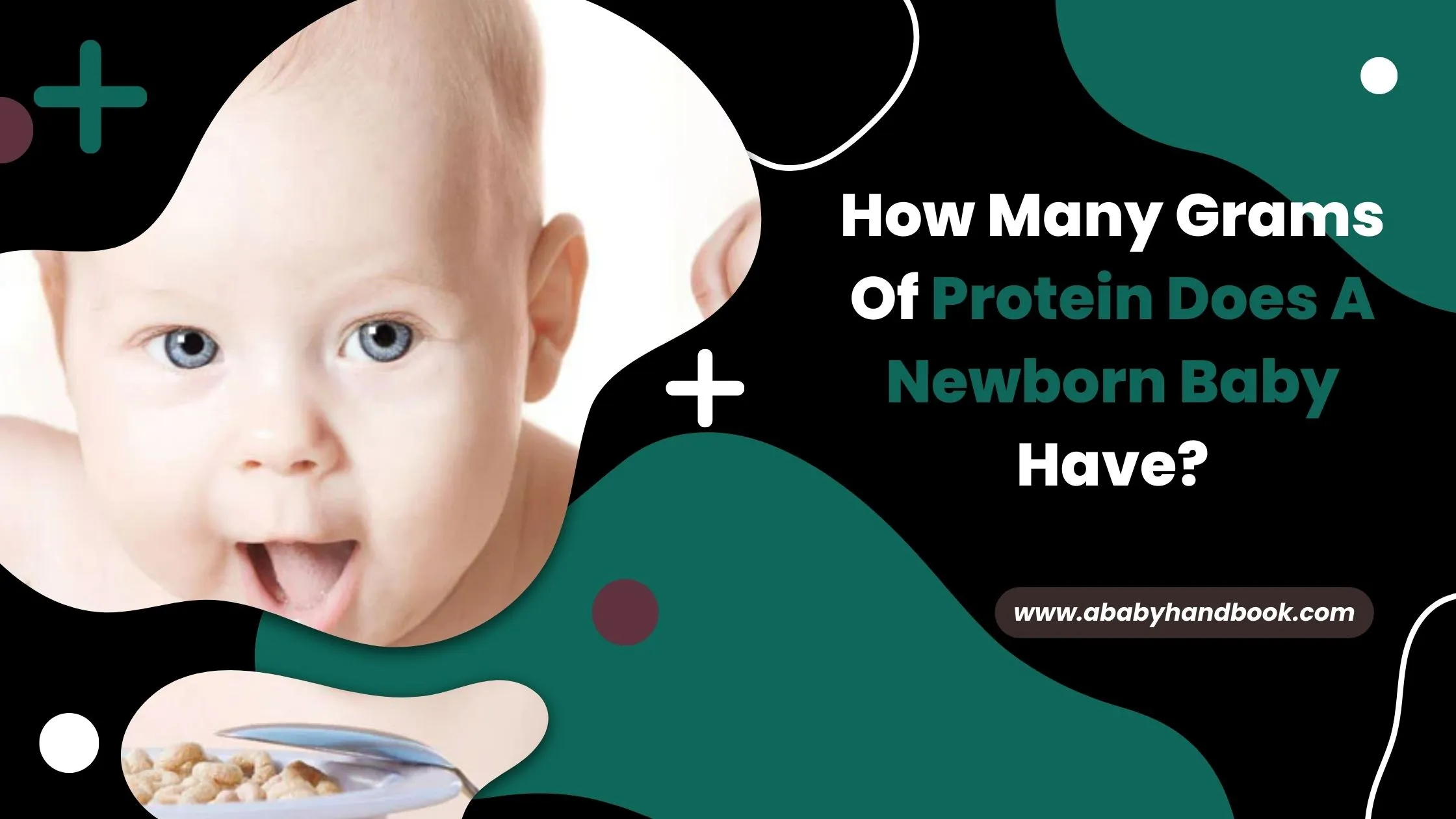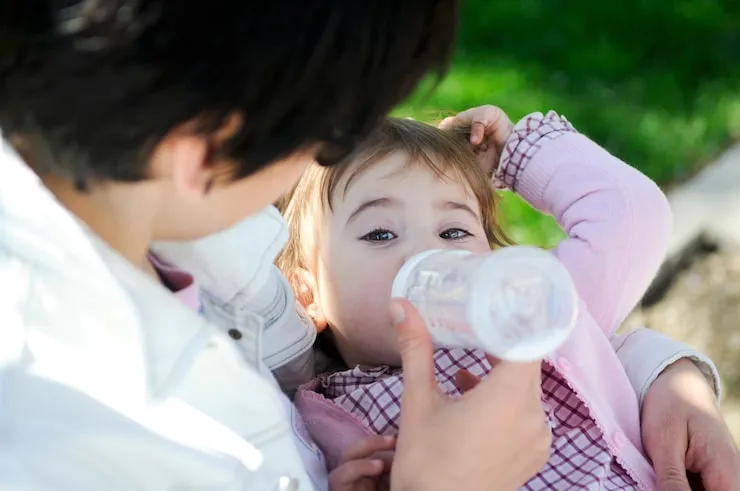How Many Grams Of Protein Does A Newborn Baby Have? The daily protein requirements of a newborn baby range between 1.8 and 2.5 grams of protein per kilogram of body weight, but this varies with many aspects that affect the needs of different age groups and the needs of an individual. The initial month of life will have a higher weight per kilogram, which is about 2.5 g/kg/day, but progressively reduces to approximately 1.8 g/kg/day in the second month. During the critical period of growth and development, breast milk and formula are the sources of protein required. Knowledge of the exact protein needs of newborns will assist the parents to promote the growth of the child and subsequently feed the babies 7 months protein food and babies 1 year protein food to ensure consistent growth.
The Role of Protein in Newborns

Protein is an important component of life. For newborns, it supports:
- It is a growth of the muscles, tissues, and vital organs.
- Normal nervous system and brain development.
- Strengthening of immunity
- The cells are repaired and formed.
Given that the body of a baby forms so fast, the amount of protein consumed directly influences the general developmental growth of the baby within the first year of life.
How Many Grams of Protein Does a Newborn Baby Have?
The weight of newborns is 2.5 kg to 4.5 kg in the vast majority of cases. Protein occupies about 10-12% of this body weight.
- The amount of protein in a 3 kg baby is approximately 300-360 grams.
- A baby of 4 kg contains approximately 400-480 grams of protein.
This is the protein that is stored throughout the body in the muscles, the skin, the blood, the organs, and the cells.
Calculating Protein for Newborns
Health specialists prescribe protein intake among newborns in terms of how much they take in a day, as opposed to the cumulative baggage.
- In infants at the age of 0 6 months, approximately 1.5 grams of protein per kg of body weight per day.
- In infants aged 712 months, approximately 1.2 grams of protein per 1000 grams of body weight is divided into one day.
Example:
- An infant of 3.5 kg requires approximately 5- 6 grams of protein per day.
- This need is achieved automatically by breast milk or formula.
Breast Milk Protein vs Formula Protein
Breast milk is the ideal source of protein for newborns in nature.
- Breast milk protein: Whey and caseins are balanced according to the needs of a baby; it is easily digestible. Has antibodies of immunity.
- protein formula: Made to resemble breast milk, but could contain more protein to make infants receive adequate nutrition. Some babies might have some difficulty digesting formula proteins.
Breast milk and formula can be used to provide the protein requirement of newborn babies, but it has been argued that breast milk is the best option due to its immunity-strengthening properties.
How Many Calories Does a Newborn Baby Have?
Calories are also essential for growth, along with protein.
- The caloric intake of a newborn baby is about 100 -120 calories/kg weight/day.
- A baby with a weight of 3.5 kg requires about 350-420 calories per day.
- Breast milk has approximately 6570 kcal/100 mL, and thus, infants receive their protein and energy requirements at the same time.
Optimal Protein Intake for Babies
Protein balance comes with proper development of the body without straining the kidneys.
- In infants (06 months): 5- 6 grams per day.
- Babies (7 -12 months): 9-11 grams/day.
- In the case of toddlers (1 year old): 13-15 grams per day.
This slow rise is favourable to accelerated growth stages as the infant passes on to solid foods.
Protein Food for Babies 7 Months
Solids are added at the age of 7 months, together with breastfeeding or formula. Protein food that is soft, easy to digest, and is used by babies who are 7 months old contains:
- Mashed lentils (dal)
- Soft scrambled egg yolk
- Pureed beans or peas
- Rice and dal khichdi
- Mashed sweet potatoes and Lentils.
- Unsweetened and fresh yogurt.
These are foodstuffs that provide mild sources of protein and can be readily handled by little digestive systems.
Protein Food for Babies 1 Year Old
Babies can have a greater variety of food rich in protein by 1 year. Healthy eating at this age builds muscles and immunity. Recommended protein food to be fed to babies of 1 year old should include:
- Paneer cubes
- Pulses, dals, and legumes
- Cheese and yogurt
- Nut pastes (almond or peanut butter, in case of no allergy)
- Entire grain items, e.g., millet, oats, and rice.
Tips for Parents on Meeting Protein Needs

- Breastfeed or breastfeed formula till at least 1 year.
- Protein-rich solids can be introduced gradually after 6 months.
- Specialize--animal protein and plant protein are both growth-promoting.
- Don't use processed or sweetened foods in fillings.
- When introducing foods, such as fish, eggs, and nuts, you should consult a pediatrician.
Conclusion
The mean body weight of a newborn baby is approximately 300-400 grams, which assists in the essential growth and development of the body. The required protein intake per day is met through natural methods via breast milk or formula, and increases with the child. Protein foods can be introduced at 7 months, such as lentils, yogurt, soft egg yolk, and at 1 year, it is more substantial protein foods, such as chicken, paneer, and legumes. The balance between protein intake and calorie intake will be the key to the maximization of growth, good immunity, and healthy development of the child during the first year of life.
FAQs
How many grams of protein does a human fetus have?
This would translate to 310 to 375 g of protein per male fetus at full term, which is somewhat less than earlier predictions, based on the usual estimate of 6.25 g of protein per gram nitrogen.
What is the normal protein level in a newborn?
From around 40 g/l in kids delivered at 28 weeks gestation to almost 60 g/1 in term babies, the total protein content in newborns increased.
Can I give glucose water to my 7 month old baby?
At this time, scientists are not sufficiently informed about the possible advantages and disadvantages to suggest sugar water for infants. Additionally, there is no proof that sugar water would assist with small annoyances like flatulence, upset stomach, or general fussiness. Give your infant sugar water only under a doctor's supervision. "How Many Grams Of Protein Does A Newborn Baby Have?"
How much protein does a newborn baby need?
It has been calculated that the typical protein requirement at 0–1 months of age is 1.65 g/100 kcal. Fomon et al. (7) investigated the safety and adequacy of a protein-energy ratio of 1.7 g/100 kcal in healthy male babies.
How can I consume 52 grams of protein daily?
Here are 15 quick and simple strategies to increase your intake of protein.
Consume your protein first.
Eat some cheese as a snack.
Use eggs instead of cereal.
Add chopped almonds on top of your food.
Select Greek yogurt.
Breakfast should consist of a protein shake.
Every meal should include a high-protein item.
Select meats that are slightly bigger and leaner.








